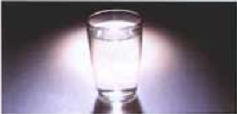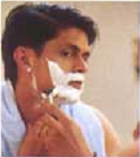Institutional
- Construction
- Hospitals
- Hotels,Eco-Resorts,Spas
- IT Parks
- Laboratories
- Malls
- Railway & Defence Sectors
- Schools, Colleges
Communities, Urban & Rural
- Homes
- Residentials Complexes & Townships
- Municipalties
- Public Health Engineering Departments
- Water Supply & Sewage Boards
- Infrastructral Development Projects
Total Water Management in the Hotel Industry
For a hotel, the continous availability of good quality water is a basic requirement
for guest satisfaction. The average per capita water consumption is 1,500 litres/day.Water
is needed for:
- Rooms and restaurants for drinking
- Central and satellite kitchens - drinking, beverages, cooking and washing of utensils
and equipment
- Bathrooms and toilets
- Launderettes, for washing of linen and clothes
- Air conditioning and refrigeration
- Cooling tower
- Boilers
- Gardeneing
- Swimming Pools
However, acute scarcity of water, its deteriorating quality and high costs pose
problems for the industry.Here, we look at two aspects - water treatement and water
conservation through waste water management.
Water Treatment
Raw water is generally from municipal supplies or borewells, in some cases supplemented
by tanker water usually drawn from ground water sources. These supplies can have
impurities in the form of suspended and dissolved solids, organics, bacteria and
viruses, heavy metals,etc. It is important therefore to treat this water keeping
in mind the health of guests as well as economics.
Various processes are available to treat any quality and quantity of water to the
required quality. Water treatement has undergone radical changes in terms of technology,design,materials
of construction, etc.Equipment is made of FRP( fibre reinforced plastic), the obvious
advantage being that FRPvessels are lighte,corrosion resistant, and more aesthetic.Membrane
technologies have revolutionised water treatment. Ultrafiltration, nanofiltration,
and reverse osmosis(RO) improve the quality of treated water,give greater operational
flexibility and require less chemicals.
Drinking Water:
Surface water can be filtered with sand filters and disinfected with ozone,UV, chlorine
or MIOX(mixed oxidants) disinfection processes.

If water contains total hardness >50ppm, dissolved solids >500ppm and excess iron,
it is not fit for human consumption.Food and water also taste different due to excess
hardness in water, cooking takes longer and cooking gas consumption increases by
30%. Hard water causes deposition on utensils.Iron causes tissue damages ,loss of
appetite and constipation.Softening and reverse osmosis systems help to overcome
these problems, ensuring that the treated water quality is within permissible limits.An
iron removal filter can be used to eliminate excess iron in water.
Bathing:
Water containing suspended impurities, hardness >100ppm, dissolved solids >500ppm,
or iron will also affect the skin and hair of guests. Due to excess hardness in
water, soaps and shampoos do not lather easily.Moreover, hardness and/or dissolved
solids can also cause scaling and corrosion in water lines, showers and taps and
on walls ,floors,bathtubs and mirrors. Not only does all this require heavy maintenance,
it also reflects poorly on the hotel image.

Simple filtration with sand and activated carbon removes suspended impurities and
associated problems. A softener or a reverse osmosis system eliminates excess hardness
and dissolved solids, while iron removal filters eliminate problems caused by excessive
iron content in water. The time required by the housekeepers to clean the room will
reduce by upto 30%, thereby reducing labour and maintenance costs.
Laundry
 Hard water reduces the claening power of detergents, leads to deteriotion and fading
of fabrics, and reduces life of fabrics by 15%. It also reacts adversely with detergents,
turning soft towels and sheets rough. Use of soft water will eliminate all these
problems as well as reduce detergent requirement by 70%.
Hard water reduces the claening power of detergents, leads to deteriotion and fading
of fabrics, and reduces life of fabrics by 15%. It also reacts adversely with detergents,
turning soft towels and sheets rough. Use of soft water will eliminate all these
problems as well as reduce detergent requirement by 70%.
Swimming Pool
 A crystal clear and hygienic swimming pool invites guests to take a refreshing dip.
Most swimming pools get contaminated with bacteria and virus, cysts like crypttosporidium
and the presence of algae, bio-films and slime in the distribution system. Superior
disinfection using MIOX process creates more, long lasting free available residual
chlorine than traditional chlorination.
A crystal clear and hygienic swimming pool invites guests to take a refreshing dip.
Most swimming pools get contaminated with bacteria and virus, cysts like crypttosporidium
and the presence of algae, bio-films and slime in the distribution system. Superior
disinfection using MIOX process creates more, long lasting free available residual
chlorine than traditional chlorination.
Cooling Tower
Use of specially chemicals for cooling water treatment along with specific treatment
programmes eliminate problems of scaling, corrosion, fouling and microbiological
growth. It reduces energy losses, increases life of costly upstream equipment, saves
water and pumping costs, optimises plant efficiency, and reduces maintenance costs.
(An ordinary scale of CaCO3 with thickness of 0.6mm can contribute to energy losses
of about 20%.)